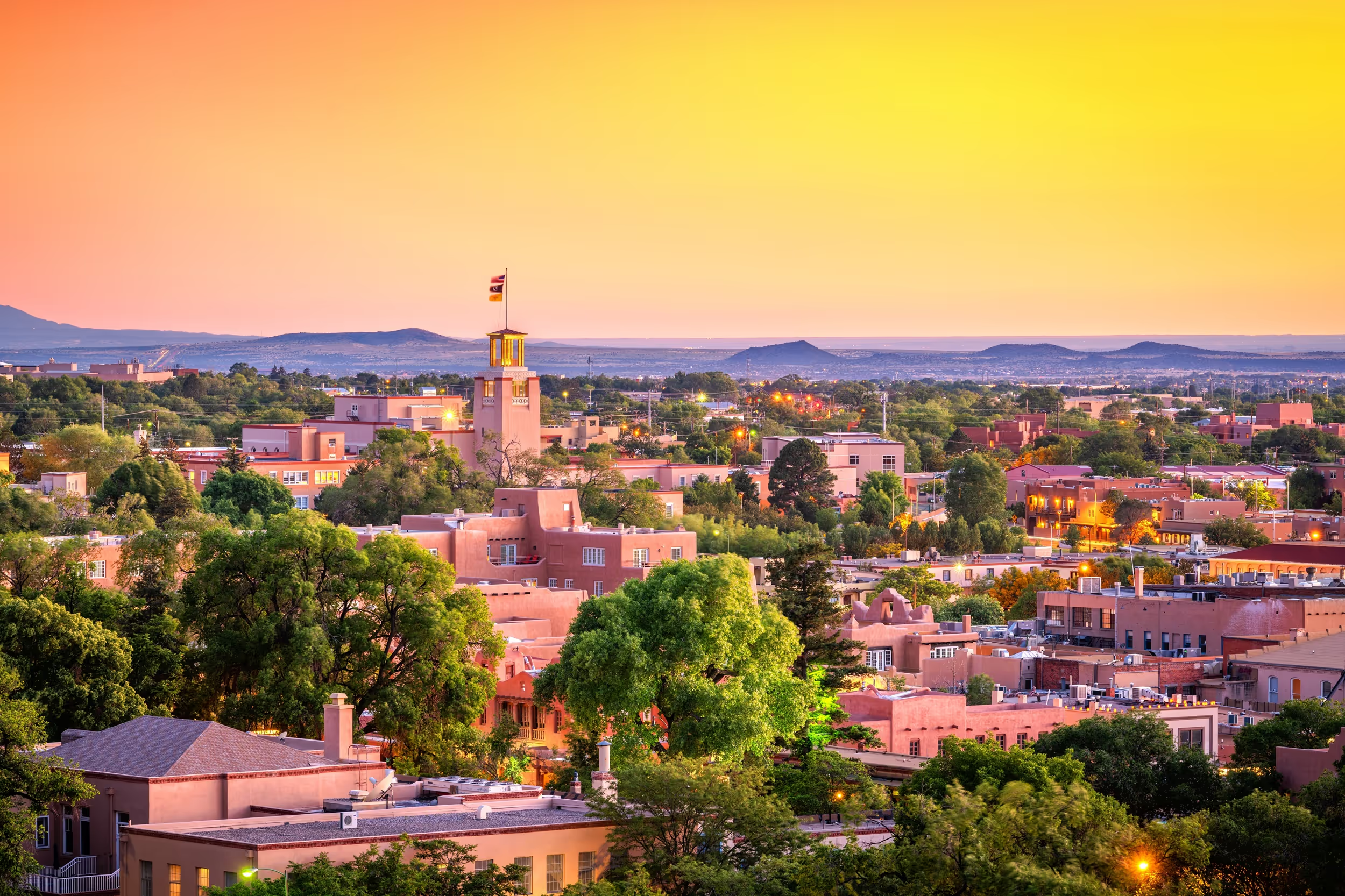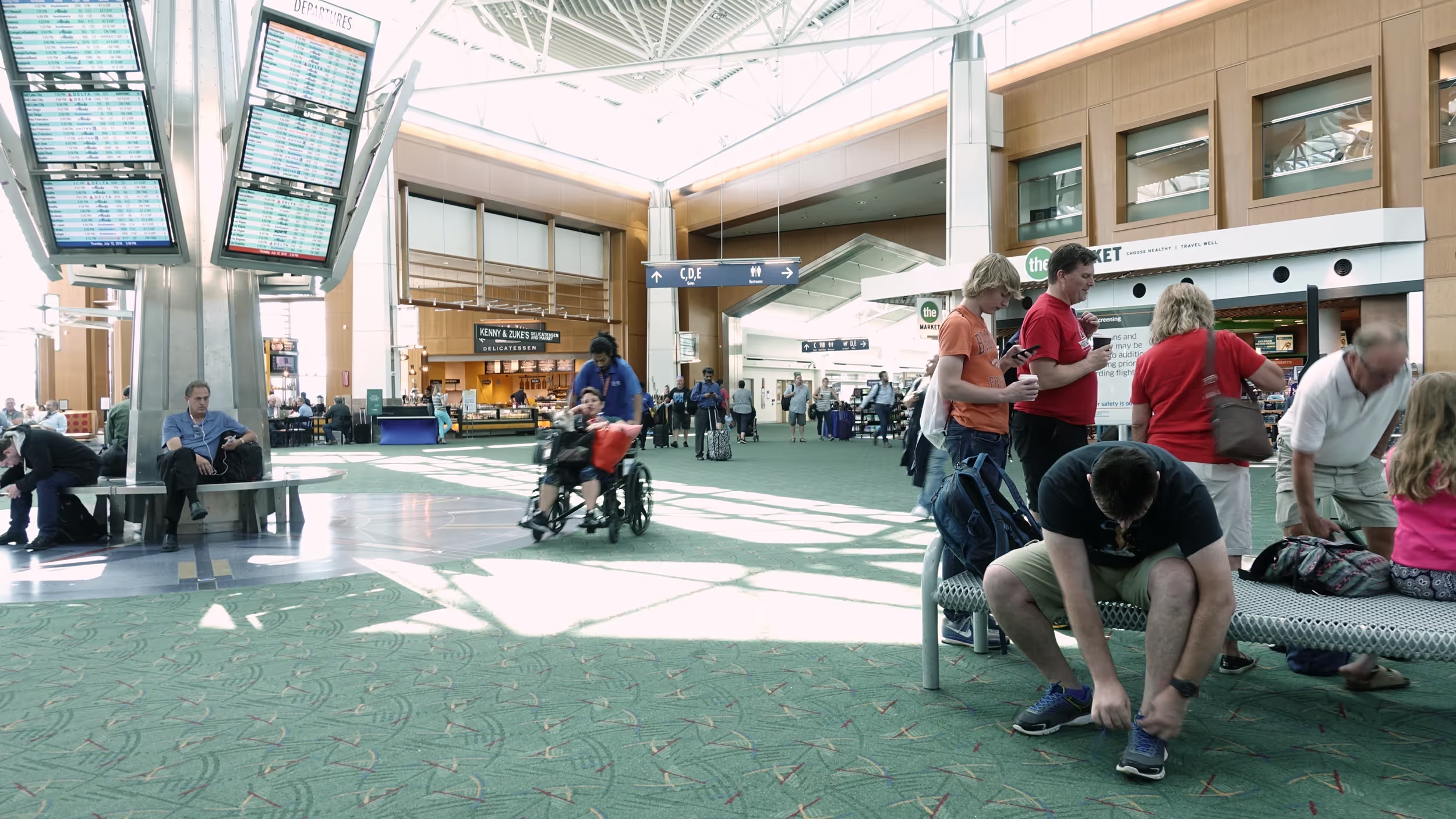Business Travel May Never Look the Same: Here's What To Expect.

US travel spending for 2020 totaled $679 billion, according to an analysis by the U.S. Travel Association. Though this seems an impressive figure considering it was in the midst of a global pandemic, it actually represents a whopping 42% decrease in travel spending compared to 2019.
Business travel took an even bigger hit. US businesses spent $160 billion less on travel in 2020 than they did in 2019. Not surprising considering the majority of Americans barely left their homes, let alone their state.
However, though much of the American workforce will continue to work from home well into Q3, there are some very encouraging signs signaling that organizations should think about revisiting their 2021 business travel plans:
Business Travel is expected to make an impressive rebound
Business travel is bouncing back, but the Global Business Travel Association expects that much of the growth for 2021 will stack up towards the end of the year. By the time the ball drops in 2022, total growth in US business travel spending could exceed 2020 by as much as 19% — jumping from $131 billion to $157 billion.
[bctt tweet="By the time the ball drops in 2022, total growth in business travel could exceed 2020 by as much as 19%." username="engine"]
This upward trajectory will likely continue as more workers receive a COVID-19 vaccine and find it increasingly difficult to suppress their itch to travel—especially among the 405 million people who are accustomed to taking a long-distance business trip each year.
Business travel has also historically defied other workforce trends, which is all the more reason industry experts expect it to shirk post-pandemic trends...
Business travel has historically proven resilient despite new alternatives
The rise of Zoom, Skype, and other virtual meeting solutions that burst onto the market 10+ years ago could have spelled the end for business travel.
Yet, regardless how widespread the adoption of these tools may be, business travel and growth of the global economy still go hand-in-hand. Harvard’s Growth Lab studied the relationship between business travel and GDP and found a positive correlation between incoming business travel to a country and that country’s economic growth.
Growth Lab Director Ricardo Hausmann told the Harvard Gazette, “According to our study, the world is benefiting enormously by mobilizing the knowhow in brains through business travel. A permanent shutdown of this channel would probably imply a double-digit loss in global GDP.”
In fact, prior to COVID-19 shutdowns, business travel actually grew faster than the global GDP, according to Hausmann. Business travel’s ripple effect around the globe bolsters projections that the sector will return to pre-pandemic levels by 2025, with travel spend increasing at an above average growth rate of 4.6% each of the next five years.
Project-based sectors will always rely on business travel
Even if some organizations opt for Zoom calls over cross-country flights, project-based sectors like construction and manufacturing will always require travel. In 2018, Skift reported that project-based travel accounted for 12% of all business trips in the US, 29% of which were within the construction industry.
For these industries, meeting in person matters. There’s no virtual alternative to scoping out a worksite, testing the quality of materials, or collaborating with contractors on a complex development.
Also of note is the fact that 52% of project-based business trips are also recurring. Given the length of many projects, experts may need to consult on a worksite multiple times over the project period, a requirement that would be near impossible to meet without keeping these workers on the road.
So, yes. Business travel is here to stay. But what will it look like?
The question isn’t whether or not business travelers will once again be on the move. Instead, companies and their travel managers should ask themselves how business travel will adapt in the coming months and years, and how they can keep up with that adaptation.
[bctt tweet="The question isn’t whether or not business travelers will once again be on the move. Instead, companies should ask themselves how business travel will adapt in the coming months and years, and how they can keep up with that adaptation." username="engine"]
55% of travel managers surveyed by the Global Business Travel Association said that their travelers are somewhat willing or very willing to travel again for business.
Frustration on the limits of remote collaboration are mounting, and many are simply craving human interaction.
Yet, once it’s safe to travel, travel managers should be ready to plan trips that look a little different than they did pre-pandemic. Here are four key differences the data points to when it comes to preparing for the future of business travel:
Companies will plan more combined meetings for longer trips
Business travelers be aware: you’ll need to be more efficient than ever before.
Workforces are now more widely distributed, and companies have a pent-up need to have workers onsite, whether that’s for a crucial, company-wide meeting or simply some much-missed water cooler talk. Companies should look at opportunities to double dip, sending workers on a single trip that can satisfy several different business priorities.
Before 2020, the average length of a domestic business trip was 3.05 days, just enough time to visit a worksite or attend a professional training. Travel managers should expect that trip length to increase and for their travelers to do more with each trip—potentially even incorporating leisure. That’s right, bleisure is on its way back too.
Business travelers might opt for more road and train travel
COVID-19 created a whole new fear of flying. Only 24% of Americans surveyed in a National Geographic and Morning Consult poll said they’d take a flight in 2021, while a third said they weren’t sure when they’d fly again. Many travelers may be steering clear of airplanes, but that doesn’t mean they’re foregoing the road altogether.
Americans embarked on 12 million long-distance road trips per day in August 2020, which marks a 37.5% increase in road trips compared to 2019. If travelers are choosing wheels over wings in their personal lives, they’ll likely make the same choice for the professional. Travel managers should prepare by having a plan in place to budget for mileage or car rentals, increased food and beverage costs, and potentially even multiple hotel stays.
Remote teams will require in-person retreats
83% of employers and 71% of employees think remote work has been a success. Most employers have yet to map out their company’s return to the office, though it’s likely that remote work of some kind is here to stay. Whether organizations opt for a fully remote workforce or a hybrid model, in-person retreats can help iron out the culture and training kinks that would normally be resolved in the office.
Company retreats can help people build relationships, reduce conflict, and strengthen the unique culture that connects every employee to the company’s overall mission. But retreats also mean that some employees will be hitting the road for the first time. Travel managers should prepare to secure bookings for larger groups and include more activities than they might for an average, pre-pandemic business trip.
There will be more scrutiny on business travel costs and outcomes
Companies will likely be more discerning when it comes to both business travel budgets and reimbursements in the upcoming years. 2020 saw near-historic revenue losses for companies of all sizes, so travel managers will have to think twice about how to best stretch business travel costs.
In addition to re-evaluating dollars and cents, business travelers will be more accountable to the outcomes of their trips. 70% of employees who travel say they enjoy business trips more than time in the office. These employees will have to make sure they can translate their aptitude for travel into value for the company.
Travel managers will be expected to walk the fine line of booking budget-friendly business trips that will both please their travelers and help them achieve valuable outcomes. Amenities like Wi-Fi and proximity to the meeting or event location can boost the productivity of business travelers.
Managed travel solutions are key to modern business travel
70% of business travel is currently unmanaged. Many business travelers book their own trips on the go, leaving little oversight for travel managers.
Business trips are also becoming more complex. They must simultaneously be more budget-friendly, more comprehensive, and more measurable than business trips of the past. Though corporate travel will return to pre-pandemic levels by 2025, pre-pandemic travel habits are a thing of the past.
Managed travel solutions allow travel and operations managers to pull their workforce out of the Wild West of hotel bookings. Companies earn $12.50 in incremental revenue for every $1 they invest in business travel, but travelers and travel managers will still need to report effectively and transparently on the costs and outcomes of their trips.
[bctt tweet="Companies earn a whopping $12.50 in incremental revenue for every $1 they invest in business travel!" username="engine"]
Adopt the business lodging solution of the future
Managing corporate lodging doesn’t have to be hard. Lodging accounts for the majority of all travel and expense spend, which is why travel managers are leaving money on the table if they or their travelers are booking hotels on the fly.
Make the most of company time and money by investing in a corporate lodging solution before business travel is back in full swing. Engine’s free hotel booking platform will simplify your travel planning process and save your company up to 60% on business lodging.
Built exclusively for businesses with workers on the road, Engine helps travel managers centralize their corporate lodging activities. Engine also leverages our collective buying power and relationships with hotels worldwide to get the most competitive rates for corporate room blocks. Travel managers can pass the torch to Engine’s Project Services experts, whose advice on different hotels, areas, and group rates will make it easier than ever to book group lodging.
Claim your free Engine account to access our travel management tools, get 24/7 customer support, and enjoy no contracts or minimums.
























.jpg)






.avif)




![What is an OBT? [+ Why They Matter]](https://cdn.prod.website-files.com/66a41388b1be9ba182f1e80c/66f97c4190ac5e26bea90c05_66a41388b1be9ba182f1efc0_online-booking-tool.avif)

.avif)

